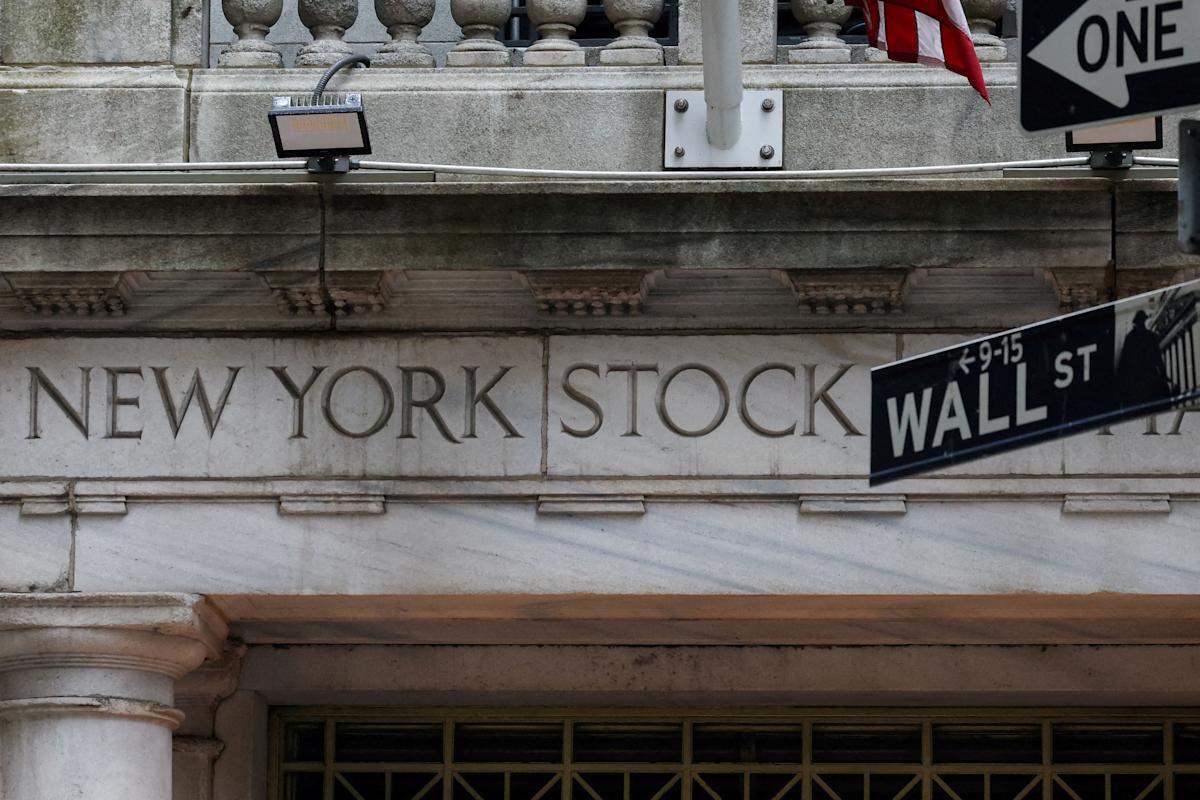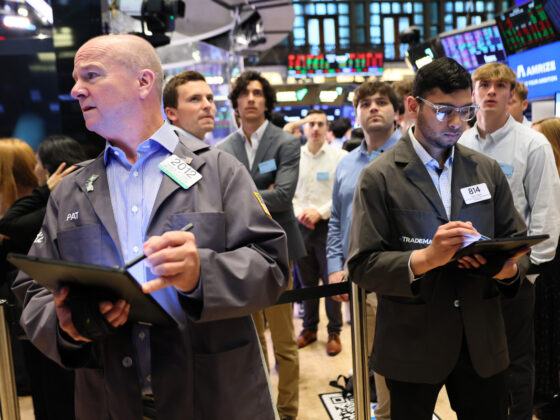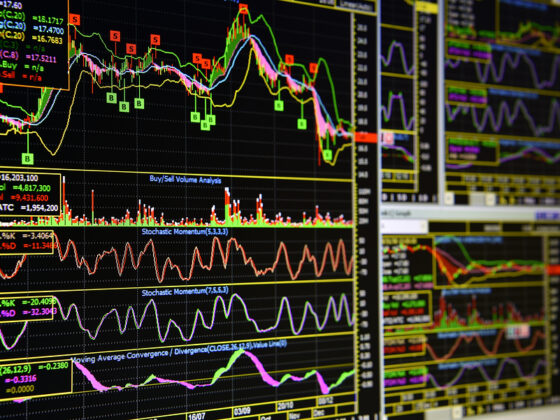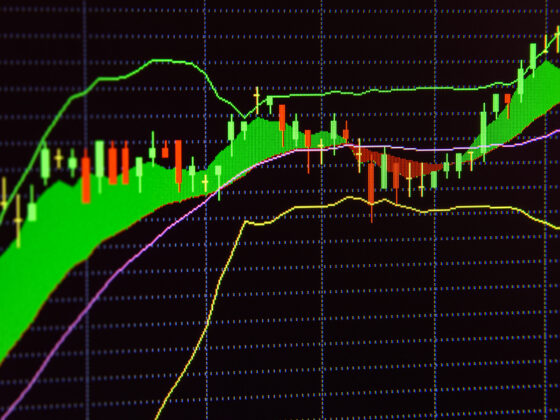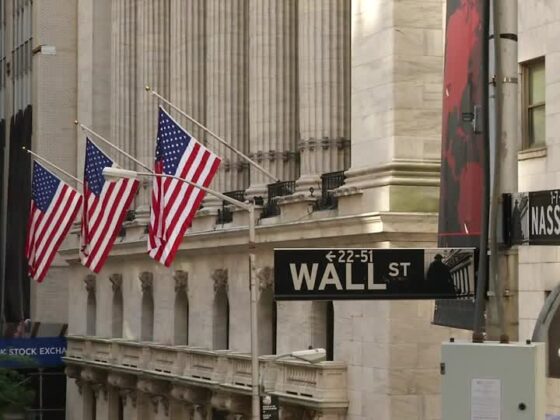Stocks wavered on Monday as President Trump reportedly granted another 90-day extension for the set of steeper tariffs on Chinese goods scheduled to go into effect on Tuesday.
The Dow Jones Industrial Average (^DJI) fell 0.4%. The S&P 500 (^GSPC) fell into negative territory to slip 0.1%, while the tech-heavy Nasdaq (^IXIC) slipped below the flat line after rising as much as 0.4%.
Stocks reacted little to reports from CNBC, The Wall Street Journal, and The Washington Post that indicated that Trump pushed back his China tariff deadline until Nov. 9 as the two sides continue to work on negotiating a firmer deal. Additional tariffs on China were previously scheduled to go into effect on Tuesday.
Wall Street is coming off a week that saw the Nasdaq Composite notch two consecutive records at its end. The S&P 500, meanwhile, just missed a record close on Friday.
Traders this week are eyeing a key inflation reading, the upcoming summit between President Trump and Russian President Putin, and an unusual sales arrangement between Nvidia (NVDA), AMD (AMD), and the US government.
Tech stocks overperformed as Apple (AAPL) posted its best week since 2020 on the heels of its White House spotlight with President Trump. Nvidia also closed Friday at a fresh record amid signals from Trump that Big Tech companies could avoid looming chip tariffs.
But in another tariff-related twist, President Trump confirmed on Monday he made a deal with Nvidia —allowing the AI chip giant to sell its H20 chip to China for a revenue cut in exchange.
“This [H20] is an old chip that China already has,” Trump said on Monday, noting the agreement does not extend to Nvidia's next generation Blackwell.
The Financial Times reported on Sunday that both Nvidia and AMD agreed to give the US government 15% of the money they make from selling certain computer chips to China.
Nvidia and AMD shares reversed early losses on Monday.
Read more: The latest on Trump's tariffs
Trump has claimed that his tariffs are having a “huge positive impact on the stock market,” though Wall Street is still navigating the twists and turns of sweeping duties on dozens of trade partners which went into effect last week.
Now, investors are turning their attention to his previewed sectoral duties on semiconductor and pharmaceutical imports, as well as a looming Tuesday deadline to extend a tariff pause with China.
Wall Street will get another glimpse this week into how those tariffs are affecting price pressures in the US. The Consumer Price Index (CPI) is set for release on Tuesday, followed by the Producer Price Index on Thursday and retail sales data on Friday. Inflation reaccelerated in June, and economists have warned that the tariffs will likely continue to seep into price data in the coming months.

